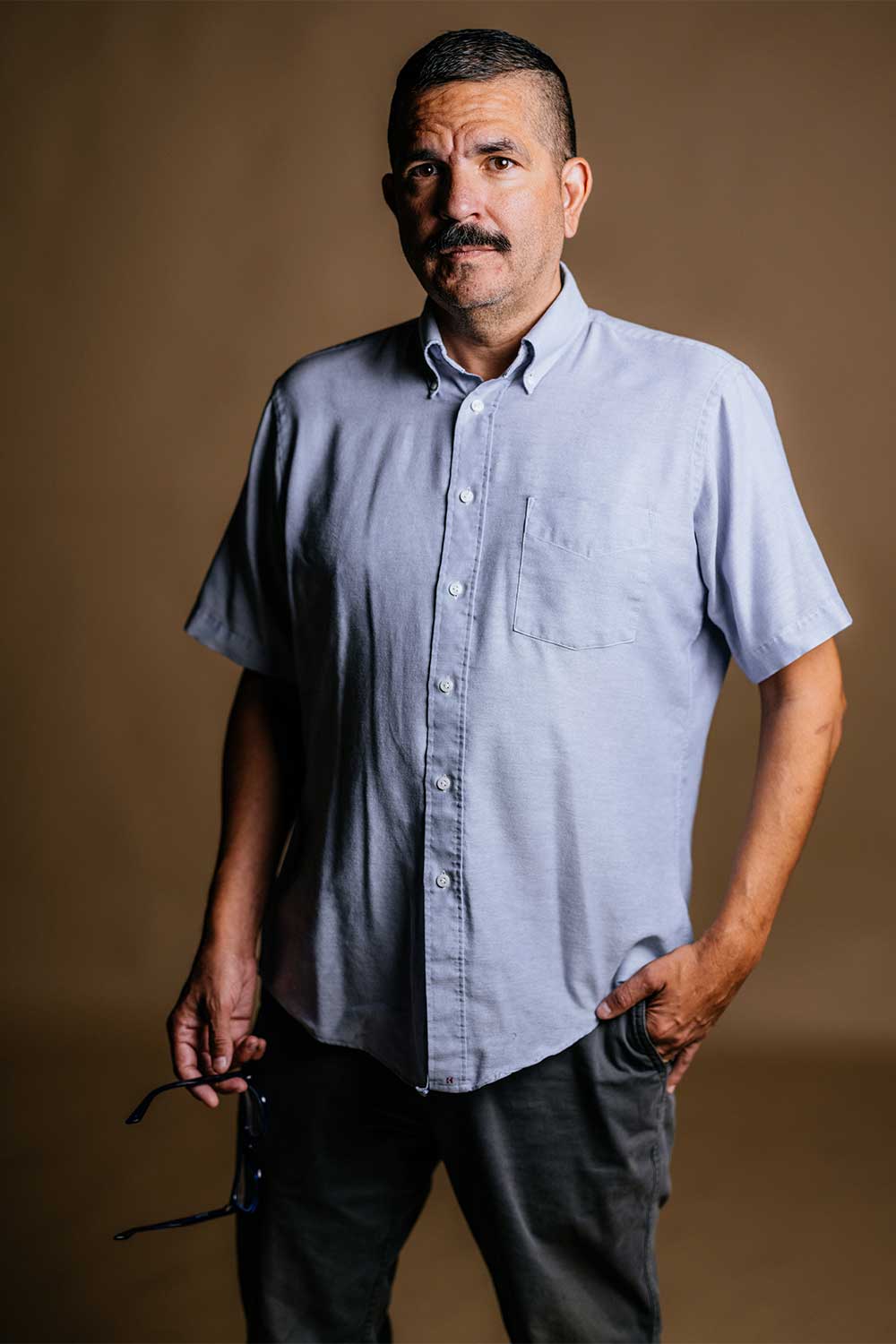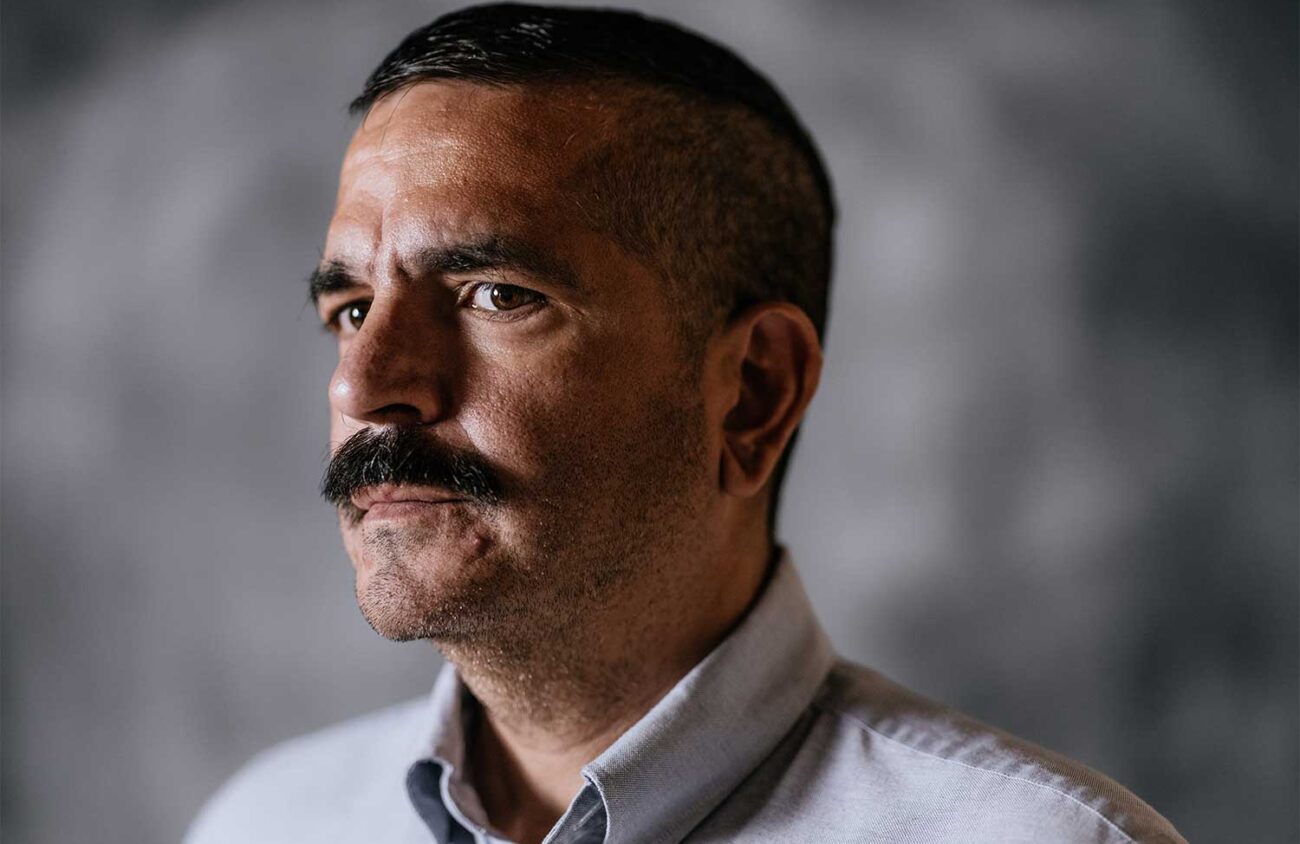In case you’ve never been there, here are a few things to know about Oakridge. With a population a shade north of 3,000 people, it sits next to the Willamette River a bit less than an hour’s drive southeast from Eugene. The collapse of the timber industry in the 1980s led to hard times in Oakridge until the town shifted to a tourist economy based on mountain biking, hiking, river rafting and fly fishing in the surrounding mountains and forests, bringing such amenities as bike shuttles, a bakery and a microbrewery to serve all those tourists.
Its most famous resident of all time might be musician and artist Mason Williams, who, at age 85, is still best known for his 1968 Grammy-winning guitar instrumental “Classical Gas.”
Move over, Mason. Another not-quite-native son has staked his own corner of artistic fame. Anthony Robinson, who lives quietly in Oakridge in a trailer near the river, got his poem “88 Days” published this spring in The New York Times Magazine. In the poetry world, that’s practically like winning an Oscar, the Pulitzer Prize or the Heisman Trophy.
Robinson, 50, is still scratching his head about his sudden encounter with fame. He has worked steadily at writing poetry for three decades, ever since he was a young sailor in the U.S. Navy with a typewriter and time on his hands. He’s studied English literature, in which he got a bachelor’s degree, and he’s studied writing poetry, in a university program he dropped out of. Of all the art forms he could have picked to express himself, poetry offers the murkiest path to success — and the fewest financial rewards to those who find their way. And Oakridge is culturally about as far from the editorial suites of New York City as, say, Mars.
Yet there it is. “88 Days” appeared last spring in a publication with a print circulation of 1.6 million readers.
88 DAYS
ago my father died &
The world is still broken
Open like a geode, too
Dazzling to apprehend,
Too terrible to come home
To. These are mountains, furred
Over with wildness where
Goats eat with abandon, these
Are more than metaphors
For absence or removal, more
Than half-completed histories.
We don’t want to live here
Anymore but we have no other
Home. Here in the wild oregano
We can’t touch the wind, we
Can’t even see each other.
— By Anthony Robinson
“Has it made me famous? Hell no,” he says. “I mean, there is nothing that came from that, other than I do have a copy of The New York Times Sunday magazine in my house. It’s got my poem in it.”
That moment of glory grew out of a long-time fascination with language and with life.
Robinson was born in Florence and grew up in Oakridge. His mother’s parents were from Mexico, and his father was one-quarter Native American, though he says ethnicity doesn’t define him. Asked where he’s from, he says, “Oregon.”
When he was 18, feeling desperate to get out of town, he joined the Navy, which gave him a desk job at Lemoore Naval Air Station, in California’s Central Valley south of Fresno. He had traded one small town he hated for another, though the Navy gave him short deployments to such exotic places as San Diego.
It was while in the Navy that he began dabbling now and then in poetry. When he got out in 1994, he headed back to Eugene, enrolled at Lane Community College as a business major and soon transferred to the University of Oregon to study English.
College was a turning point. “That’s when I really started writing poems, because I was reading them. And so I thought, ‘Hey, maybe I can try this.’ And I tried it, and it seemed to work for me.”
He fell under the spell of UO professor Karen Ford, a demanding teacher who would sometimes give Fs to most of her students on a difficult assignment — one, say, on the meaning of the final section of T.S. Eliot’s “The Wasteland.” Most students failed the assignment. Robinson got a B+ on it.
“She just looked like someone who was going to kill you if you didn’t do things right,” Robinson says. “She was probably the best professor I ever had. I respected her, and I almost loved her.”
He was less successful when he was accepted into the UO’s Master of Fine Arts program in poetry, where he ran up against a professor he prefers not to name.
“Basically what he was trying to do, when I had my last conversation with him, was he was upset that I was not writing poems about a Mexican-American-Chicano experience. That’s part of my identity, but that’s not all of who I am. It’s only part of me. It’s not my whole existence. And I was just like, ‘All right, I’m outta here.’”
Enlarge

Like many other poets, Robinson spent years spinning the treadmill of submitting poems to ever-more-obscure literary journals in the hope of getting his work published, somewhere, and finding an audience. He seldom submits poems anymore, except to post short pieces on Instagram. “It just seems like a lot of labor for something that’s not going to pay off for me, you know? I mean, because for me, writing is its own reward. And maybe that sounds stupid and cliché, but it’s true. I am most happy about poetry when I finish something that I like.”
Robinson, though, admits the lack of audience can be tough. “You know, my own mother doesn’t read my poems.”
He can trace the events that led to appearing in The New York Times Magazine to an email he got out of the blue more than two decades ago from a young man named Joshua Edwards, who asked him to submit poetry for a new magazine he was starting, Canary. At first, Robinson was wary. He met Edwards for coffee, at Espresso Roma by campus, and enjoyed the meeting — but he didn’t submit any poems. “I just thought it would be better if I was his friend and adviser.” Instead, he ended up working with Edwards on the magazine, which led to helping Edwards with a book publishing house in New York City named Canarium, supported by Columbia University.
Earlier this year, Canarium published Robinson’s first full-length book, Failures of the Poets, a slender volume of poems, small essays and photographs.
“So what happened was, I got these books in February, and then, probably the first week of March, Josh sends me a message, on Instagram, of course. And he says, ‘Hey, good news, your poem ‘88 Days’ is going to appear in The New York Times.’”
Robinson laughs at the memory. “I’m like, ‘What?’”
His poem had been selected by Anne Boyer, the magazine’s Pulitzer Prize-winning poetry editor, who had been following Robinson’s work on Instagram.
“The force of grief is sublime, scattering certainty, reorganizing the world around the fresh absence of the dead,” Boyer writes in the magazine. “‘88 Days’ is a powerful poem, executed with absolute fidelity to that eviscerating feeling. Its technique is gravity: staid couplets, considered lines, confident imagery. That awe-struck, awful, careening sensation of loss is held in place by the weight of language itself.”
Despite the book’s physical elegance and the power of Robinson’s informal and earthy poetic voice, having his book come out and appearing in the magazine has made little difference in his day-to-day life.
“When I signed on to do the book,” Robinson says, “I got a $500 advance from Columbia University, and then I got like 200 copies. I’ve probably got like 150 of ’em left.”
Poetry, of course, doesn’t live in the same cultural universe as, say, Duck football. Few contemporary poets are widely famous, and most who actually make a living do so by teaching.
“I am not famous or successful in any meaningful way,” Robinson says. “Or maybe I am, in a meaningful way. I mean, a meaningful but not lucrative way. Poetry fits into the world for people who find it important, for people who cling to it, who hold onto it. In the long run, it is essential to me because I always find things I’m going back to, um, you know, that will buoy me. It seems like a weird cliché thing to say, like, ‘Oh, it helps me survive’ — but — you know — it really does.”
Failures of the Poets is available through Canarium Press, Canarium.org, $17.
